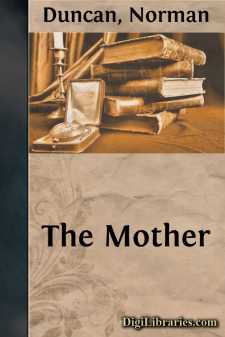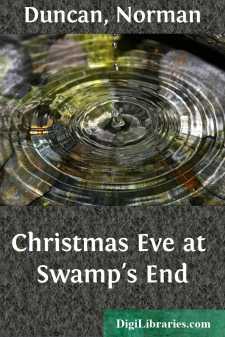Categories
- Antiques & Collectibles 13
- Architecture 36
- Art 48
- Bibles 22
- Biography & Autobiography 813
- Body, Mind & Spirit 142
- Business & Economics 28
- Children's Books 17
- Children's Fiction 14
- Computers 4
- Cooking 94
- Crafts & Hobbies 4
- Drama 346
- Education 46
- Family & Relationships 57
- Fiction 11829
- Games 19
- Gardening 17
- Health & Fitness 34
- History 1377
- House & Home 1
- Humor 147
- Juvenile Fiction 1873
- Juvenile Nonfiction 202
- Language Arts & Disciplines 88
- Law 16
- Literary Collections 686
- Literary Criticism 179
- Mathematics 13
- Medical 41
- Music 40
- Nature 179
- Non-Classifiable 1768
- Performing Arts 7
- Periodicals 1453
- Philosophy 64
- Photography 2
- Poetry 896
- Political Science 203
- Psychology 42
- Reference 154
- Religion 513
- Science 126
- Self-Help 84
- Social Science 81
- Sports & Recreation 34
- Study Aids 3
- Technology & Engineering 59
- Transportation 23
- Travel 463
- True Crime 29
The Mother
by: Norman Duncan
Description:
Excerpt
BY PROXY
It will be recalled without effort—possibly, indeed, without interest—that the obsequies of the old Senator Boligand were a distinguished success: a fashionable, proper function, ordered by the young widow with exquisite taste, as all the world said, and conducted without reproach, as the undertaker and the clergy very heartily agreed. At the Church of the Lifted Cross, the incident of the child, the blonde lady and the mysteriously veiled man, who sat in awe and bewildered amazement where the shadows gave deepest seclusion, escaped notice. Not that the late Senator Boligand was in life aware of the existence of the child or the lady or the strange fellow with the veil. Nothing of the sort. The one was the widow of Dick Slade, the other his son, born in wedlock; and the third was the familiar counsellor and intimate of them all. The Senator was for once turned to good account: was made contributor to the sweetness of life, to the comfort of the humble. That was all. And I fancy that the shade of the grim old robber, lurking somewhere in the softly coloured gloom of the chancel, was not altogether averse to the farce in which his earthly tabernacle was engaged....
When Dick Slade died in the big red tenement of Box Street, he died as other men die, complaining of the necessity; and his son, in the way of all tender children, sorely wept: not because his father was now lost to him, which was beyond his comprehension, but because the man must be put in a grave—a cold place, dark and suffocating, being underground, as the child had been told.
"I don't want my father," he woefully protested, "to be planted!"
"Planted!" cried the mother, throwing up her hands in indignant denial. "Who told you he'd be planted?"
"Madame Lacara."
"She's a liar," said the woman, composedly, without resentment. "We'll cut the planting out of this funeral." Her ingenuity, her resourcefulness, her daring, when the happiness of her child was concerned, were usually sufficient to the emergency. "Why, darling!" she exclaimed. "Your father will be taken right up into the sky. He won't be put in no grave. He'll go right straight to a place where it's all sunshine—where it's all blue and high and as bright as day." She bustled about: keeping an eye alert for the effect of her promises. She was not yet sure how this glorious ascension might be managed; but she had never failed to deceive him to his own contentment, and 'twas not her habit to take fainthearted measures. "They been lying to you, dear," she complained. "Don't you fret about graves. You just wait," she concluded, significantly, "and see!"
The boy sighed.
"Poddle and me," she added, with a wag of the head to convince him, "will show you where your father goes."
"I wish," the boy said, wistfully, "that he wasn't dead."
"Don't you do it!" she flashed. "It don't make no difference to him. It's a good thing. I bet he's glad to be dead."
The boy shook his head.
"Yes, he is! Don't you think he isn't. There ain't nothing like being dead....







